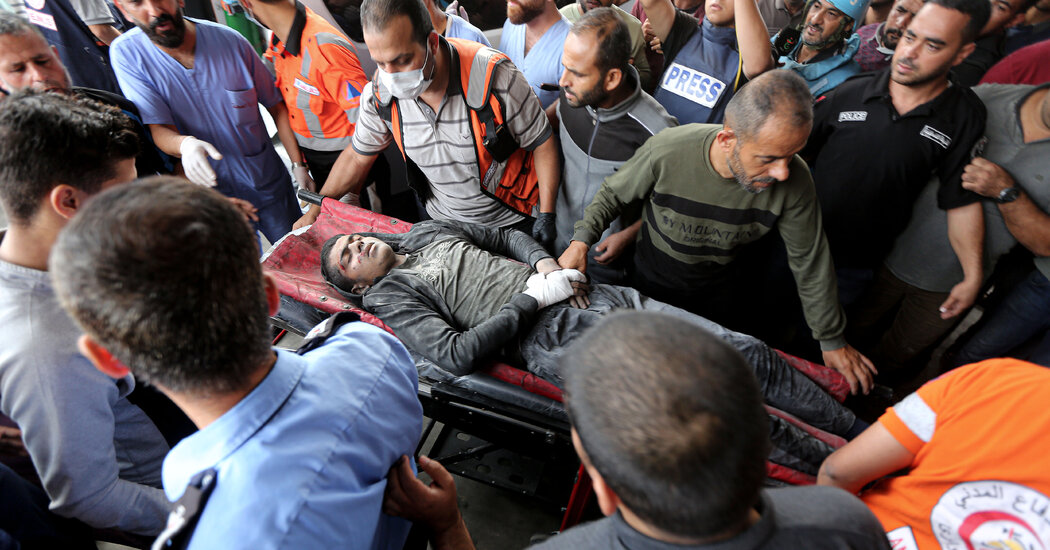For the second week in a row, thousands gathered in front of the central military headquarters in Tel Aviv to express frustration with Israel’s response to the over 200 hostages held in Gaza and to urge the government to do more to rescue them.
Demonstrators carried posters showing pictures of the captives and listened to family members share stories of loss. It was the largest rally in Israel since Hamas’s attack on Oct. 7, which killed an estimated 1,200 people. Among the hostages taken by various Palestinian groups, including Hamas, are civilians, soldiers, children, older adults and people with medical problems. So far, Hamas has released four hostages, and Israeli forces rescued another one.
Omer Waiss, 30, whose mother, Judith Waiss, 65, is being held hostage in Gaza, said: “The small comfort we have is the mobilization of the people. Not the government, the people.”
Despite efforts led by the United States and Qatar to negotiate the release of the remaining hostages, there is no deal in sight, and demonstrators in Israel have begun to call out their own government, saying that not enough is being done to free the hostages.
One demonstrator, Yoav Dovrat, 56, of Tel Aviv, said that while the government claimed to be committed to securing the release of the hostages, he did not think the leaders considered it a top priority.
On Wednesday, The Times reported that Israel and Hamas nearly struck a deal to free up to 50 hostages in late October. Negotiations were derailed after Israeli forces began a ground invasion of Gaza on Oct. 27.
Yasmine Becker, 50, of Tel Aviv, who was at the demonstration on Saturday night, said she felt that the Israeli military operation in Gaza was “not the way” to secure the release of the hostages.
Amram Zahavi, 76, from a town near Netanya in central Israel, said that the ground invasion could even threaten the hostages’ lives. If the military were to find the hostages, he said, the captors could kill them before they could be rescued.
As Mr. Zahavi saw it, Prime Minister Benjamin Netanyahu and Benny Gantz, a former defense minister who is a member of the small war cabinet in Israel’s emergency government, were not exhibiting enough urgency on the hostage crisis.
Many of the demonstrators at the rally also participated in the monthslong protests against the far-right Netanyahu government and its judicial overhaul before the war.
Mr. Dovrat compared the judicial overhaul protests to the hostage rally, saying: “The goal is slightly different, but I hope it leads to the same thing: a change in government. And the sooner, the better.”


